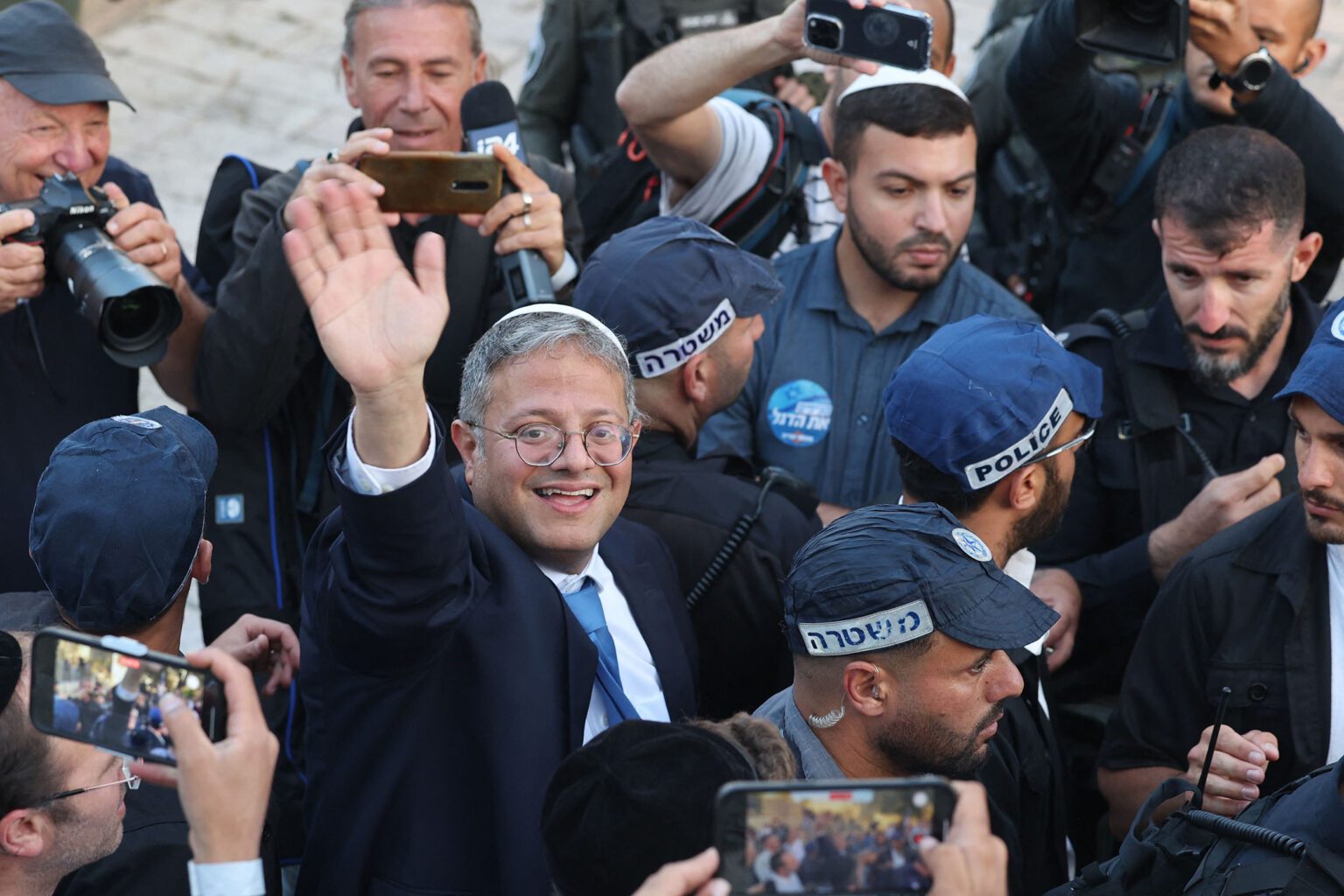Global Courant 2023-05-21 13:42:16
An extremist Israeli cabinet minister visited a sensitive holy site in Jerusalem on Sunday at a time of heightened tensions with the Palestinians.
The visit by National Security Minister Itamar Ben-Gvir, his second known visit since joining Israel’s most right-wing government ever, drew condemnation from the Palestinians and from Israel’s neighbor Jordan, which acts as custodian of the site.
“I am happy to come to the Temple Mount, the most important place for the Israeli people,” Ben-Gvir said during his early morning visit to the site, with the golden Dome of the Rock in the background, according to a released video. through his office. He praised the police presence at the location, saying it “proves who is in charge in Jerusalem”.
Palestinian presidential spokesman Nabil Abu Rudeineh called Ben-Gvir’s visit a “blatant attack” on the mosque. The Jordanian foreign ministry called it “a provocative move that is condemned, and a dangerous and unacceptable escalation”.
Israel’s National Security Minister Itamar Ben-Gvir during the annual ‘flag march’ to mark ‘Jerusalem Day’ on May 18.Ahmad Gharabli/AFP – Getty Images
The visit comes days after Israelis celebrated Jerusalem Day, celebrating Israel’s conquest of East Jerusalem in the 1967 Middle East war. Flag-waving nationalists marched through the main Palestinian thoroughfare in Jerusalem’s Old City, some chanting racist anti-Arab chants, as hundreds of Jews visited the sensitive shrine on the hill, including a senior minister from Ben-Gvir’s party, but not Ben-Gvir himself.
Later on Sunday, Prime Minister Benjamin Netanyahu’s cabinet is expected to hold a special session to mark the occasion near the Western Wall, the holiest place for Jews to pray and a surviving outer wall of the biblical Temples.
Known to Jews as the Temple Mount, the hilltop is the holiest in Judaism and home to the ancient biblical temples. Today it houses the Al-Aqsa Mosque, the third holiest site in Islam. Since Israel captured the site in 1967, Jews have been allowed to visit but not pray.
The ultra-nationalist Ben-Gvir, along with a growing movement of activists, has long advocated for more Jewish access to the holy site.
Palestinians view the mosque as a national symbol and view such visits as provocative and as a possible harbinger of Israel taking control of the compound. Most rabbis forbid Jews from praying at the site, but in recent years there has been a growing movement of Jews supporting the worship.
Tensions in the disputed compound have fueled previous rounds of violence. A visit by then-opposition leader Ariel Sharon in September 2000 sparked clashes that culminated in the second Palestinian uprising. Clashes between Israeli security forces and Palestinian protesters in and around the site led to an 11-day war with Hamas in 2021.
Israel captured Jerusalem’s Old City, with its sites sacred to three monotheistic religions, along with the rest of East Jerusalem, the West Bank, and the Gaza Strip in the 1967 Middle East War. The Palestinians seek those territories for a future independent state, with East Jerusalem as its capital. Israel annexed East Jerusalem in a move unrecognized by most of the international community and regards the city as its undivided, eternal capital.
Violence between Israel and Palestinians in the West Bank has peaked over the past year, when Israel launched near-night raids in response to a spate of Palestinian attacks.
Since the spring of 2022, more than 250 Palestinians have been killed by Israeli fire. About 50 people have been killed in Palestinian attacks on Israelis.
Israel says most of the Palestinians killed were militants, but stone-throwing youths protesting the raids and people not involved in the clashes have also been killed.
Earlier this month, fighting also broke out between Israel and militants in the Gaza Strip. Israeli strikes killed 33, many of them militants but also women and children, and two people were killed in Israel by militant rocket fire.








